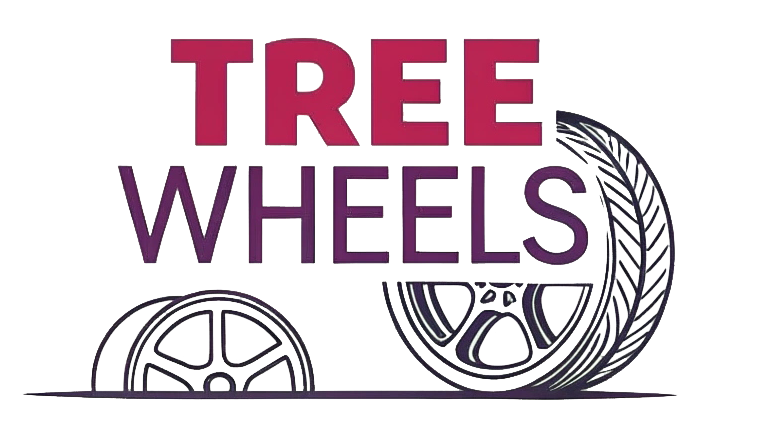Struggling to choose between aluminum and chrome wheels? You're not alone. This decision impacts your car's look and performance.
Aluminum wheels are lighter and improve fuel efficiency. Chrome wheels, often aluminum with a chrome coating, shine but require more maintenance. Both perform well.

I’ve spent years in the automotive industry, and wheel choices always spark debates. Let’s dive into the details to help you decide.
Are Chrome Wheels Better Than Aluminum?
Shiny chrome wheels catch your eye, don’t they? Their bold look screams luxury, but there’s a catch.
Chrome wheels are aluminum wheels with a chrome plating. They dazzle but are heavier and prone to scratches. Maintenance is tougher than plain aluminum.

Why Chrome Appeals
Chrome wheels shine like mirrors. I remember my first car with chrome rims—it felt like driving a showpiece. But that sparkle comes at a cost. The chrome layer adds weight, which can slightly reduce fuel efficiency. Scratches on chrome are also more noticeable than on bare aluminum.
Maintenance Challenges
Chrome needs regular cleaning. Brake dust sticks to it like glue. I learned this the hard way when my chrome wheels dulled after neglecting them```
Comparing Chrome and Aluminum
| Feature | Chrome Wheels | Aluminum Wheels |
|---|---|---|
| Weight | Heavier | Lighter |
| Maintenance | High | Low |
| Durability | Prone to scratches | More scratch-resistant |
| Cost | More expensive | Budget-friendly |
Chrome wheels are stunning but demand effort to maintain. Aluminum wheels, without the plating, are simpler and lighter. Your choice depends on style versus practicality.
What Is the Best Material for Wheels?
Choosing the right wheel material feels overwhelming. Steel, aluminum, or magnesium? Each has trade-offs.
Aluminum is the best wheel material for most drivers. It’s lightweight, durable, and cost-effective. Steel is cheaper but heavier. Magnesium is lightest but expensive.

Breaking Down Wheel Materials
Steel wheels are tough but heavy. They’re great for budget builds or rugged vehicles. I used steel wheels on my old truck, and they handled rough roads well. Aluminum, however, dominates the market. It’s lighter, improving handling and fuel efficiency. Magnesium wheels are rare, mainly for racing due to their high cost and fragility.
Why Aluminum Wins
Aluminum strikes a balance. It’s corrosion-resistant, unlike steel, which rusts if not coated. It’s also easier to customize, as we do at Tree Wheels. Our forged aluminum wheels offer strength and style. Magnesium, while ultra-light, cracks under stress, making it impractical for daily driving.
Cost vs. Performance
| Material | Cost | Weight | Durability |
|---|---|---|---|
| Steel | Low | Heavy | High |
| Aluminum | Moderate | Light | Moderate |
| Magnesium | High | Ultra-light | Low |
Aluminum is my go-to for most projects. It’s versatile, reliable, and fits most budgets, making it ideal for customization.
Is Chrome Better Than Aluminum?
The chrome versus aluminum debate never ends. Both have fans, but which wins?
Chrome is not better than aluminum. It’s aluminum with a shiny coating. Chrome looks great but adds weight and maintenance. Aluminum is lighter and easier to care for.

Chrome’s Aesthetic Edge
Chrome wheels turn heads. I fitted chrome wheels on a client’s luxury sedan, and the car looked stunning. But the client soon complained about cleaning them. Chrome’s shine fades without constant care. Aluminum, with or without coatings, holds up better in daily use.
Practicality Matters
Chrome’s weight slightly affects performance. I noticed a small dip in fuel efficiency with chrome wheels on my test car. Aluminum wheels, being lighter, improve acceleration and efficiency. Scratches on aluminum are less obvious, too, saving you repair costs.
Long-Term Value
| Aspect | Chrome | Aluminum |
|---|---|---|
| Appearance | High shine | Customizable |
| Weight | Heavier | Lighter |
| Upkeep | Frequent cleaning | Minimal |
| Repair Cost | Higher | Lower |
Chrome is a style choice. Aluminum is a practical one. For most drivers, aluminum’s benefits outweigh chrome’s flash.
What Are the Advantages of Aluminum Wheels?
Aluminum wheels dominate for good reasons. But what makes them stand out?
Aluminum wheels are lightweight, durable, and customizable. They improve fuel efficiency, handling, and braking while offering endless design options for a unique look.

Performance Boost
Aluminum’s light weight reduces unsprung mass, improving suspension response. I noticed sharper handling when I switched to aluminum wheels on my daily driver. Better fuel economy was a bonus. They also dissipate heat better than steel, reducing brake wear.
Customization Freedom
At Tree Wheels, aluminum is our canvas. We offer one-piece, two-piece, and three-piece forged wheels in custom sizes, designs, and colors. A client once requested a unique matte black finish—it was a breeze with aluminum. Steel or magnesium can’t match this flexibility.
Durability and Cost
Aluminum resists corrosion, unlike steel. It’s not indestructible, but it holds up well. Compared to magnesium, aluminum is affordable and less prone to cracking. Our wheels at Tree Wheels are ISO and DOT certified, ensuring quality.
| Advantage | Aluminum Benefit |
|---|---|
| Weight | Reduces vehicle load, boosts efficiency |
| Customization | Endless design and finish options |
| Durability | Resists corrosion, handles daily wear |
| Cost | Affordable compared to magnesium |
Aluminum wheels are the sweet spot for performance, style, and value. They’re my top pick for any build.
Conclusion
Aluminum wheels outperform chrome in weight, maintenance, and cost. Chrome shines but demands effort. Choose aluminum for practicality and style. Discover custom forged wheels at Tree Wheels today!



